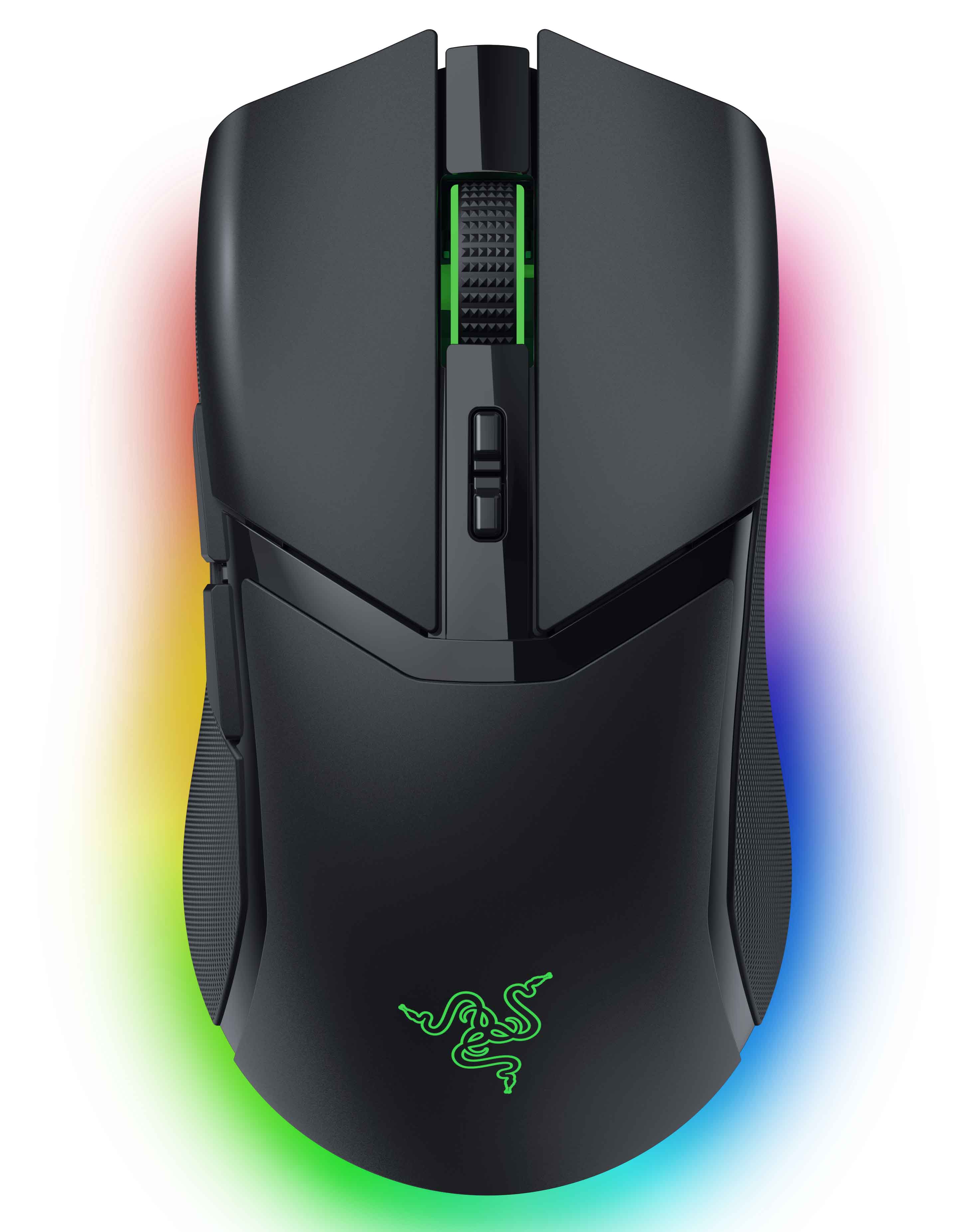When Razer pinged me for a review of the Razer Cobra Pro, I wondered how many mice can this company launch without becoming redundant. Turns out, four, including that Cobra Pro, which finds a sweet spot between Razer’s high-performance gaming mice (Viper V2 Pro, DeathAdder V3 Pro review) and its top-tier “everything mouse,” found in my Basilisk V3 Pro with Mouse Dock Pro review (which has been my daily mouse since, well, Basilisk Ultimate).
Starting at $129 (and going up to $169 with the fantastic Mouse Dock Pro), the wireless Cobra Pro is like Basilisk V3 Pro but stripped down and made symmetrical instead of ergonomic. Indeed, it only weighs 77 grams compared to Basilisk V3 Pro’s 112 grams. But here’s the kicker: it includes all the same hardcore gaming technology as the Basilisk, like HyperSpeed Wireless, up to 4,000Hz polling, Focus Pro 30K Optical Sensor, Gen-3 switches, support for wireless charging, and yes, “under glow” chroma RGB.
I’ve been using the Cobra Pro for a few days, and here is the rest you need to know about it.
Razer Cobra Pro: Price and availability
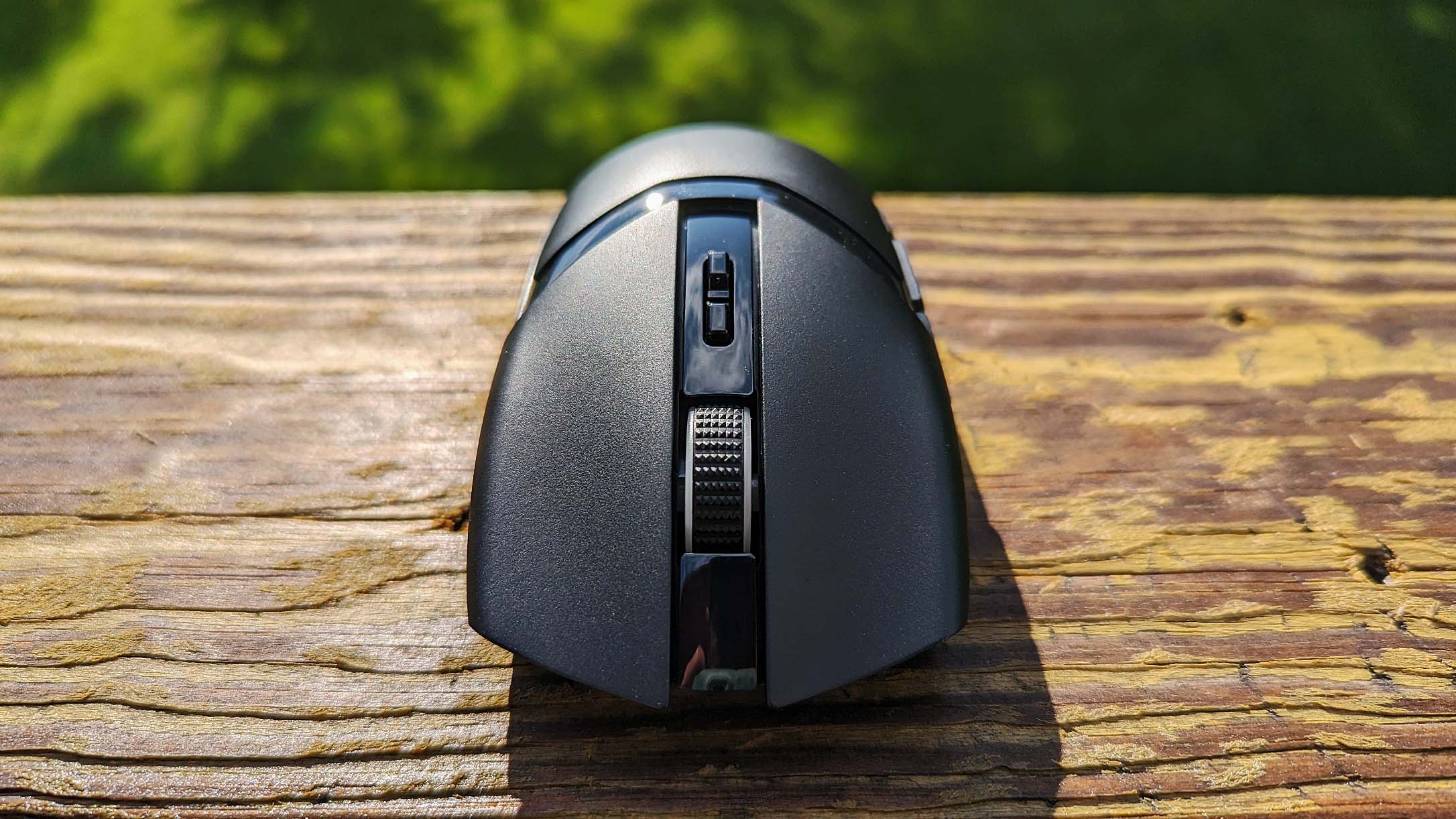
Razer Cobra Pro starts at $129.99 worldwide on June 29, 2003. There are, however, four major configurations with optional upgrades and the similarly designed (but feature-depleted) regular Razer Cobra for $40.
Here are the current configurations available from Razer.com and will be shipping through Razer’s regular third-party retailers like Best Buy and Amazon.com in the coming weeks.
- Razer Cobra Pro (mouse only): $129.99
- Razer Cobra: $40
The other three versions listed below are Razer.com and Razer Store-exclusive configurations. Razer is bundling the upgrades into lower-cost packages that are more affordable than buying Cobra Pro and the upgrades separately. However, to manage inventory better, they are online or Razer-store only.
- Razer Cobra Pro + Wireless Charging Puck: $139.99 (7% off)
- Razer Cobra Pro + HyperPolling Wireless Dongle: $144.99 (9% off)
- Razer Cobra Pro + Mouse Dock Pro (and HyperPolling): $169.99 (15% off)
The version with the Wireless Charging Puck assumes you already have Razer Mouse Dock Pro and need an extra puck for your new mouse. The HyperPolling dongle delivers up to 4,000Hz polling for extreme gaming, while the $169.99 package includes everything in one shot: Mouse Dock Pro, wireless charging puck, and HyperPolling.
Our recommended configuration
Razer Cobra Pro: Design and features
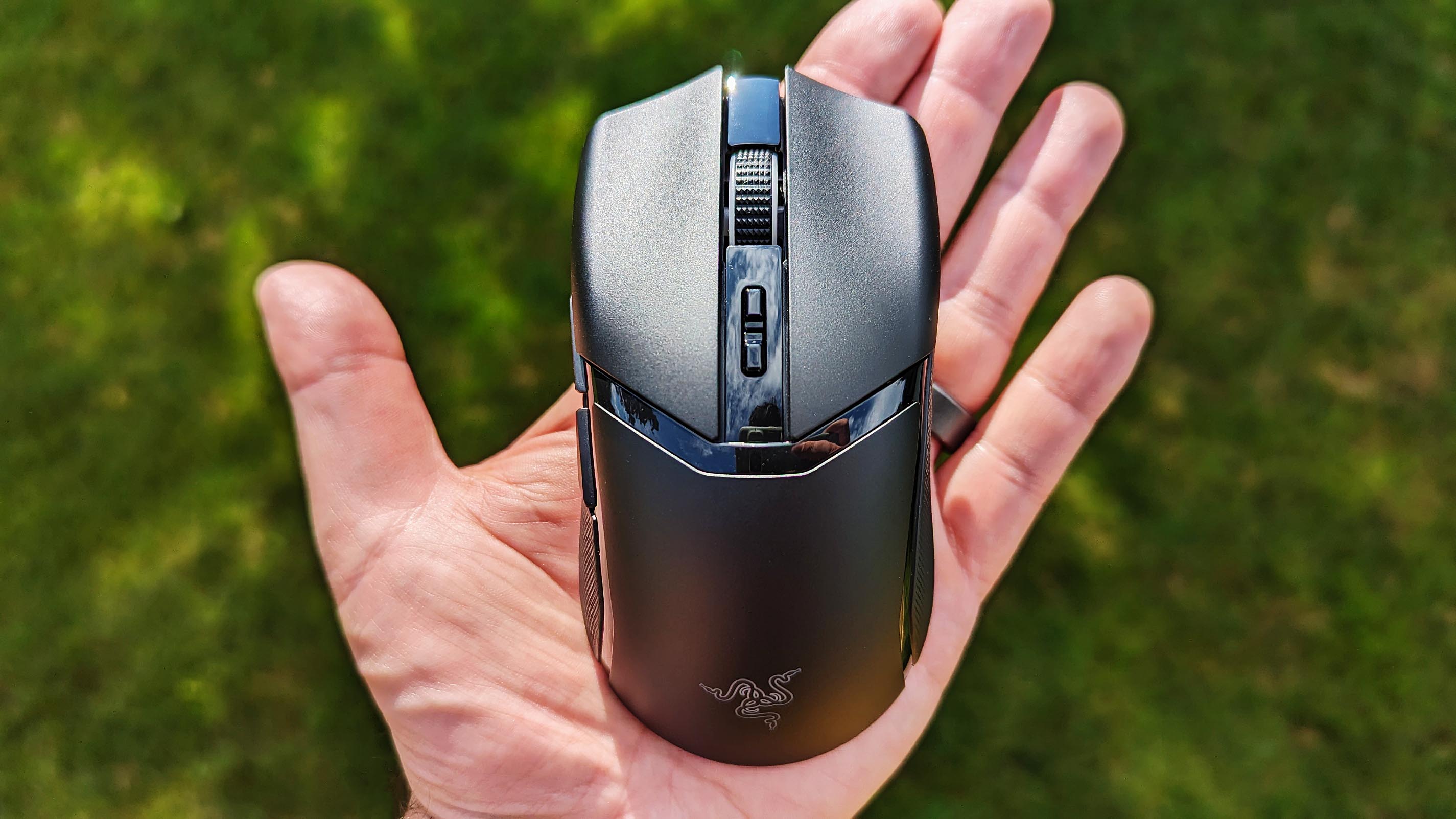
Considering the $129 price Razer commands, you expect the Cobra Pro to pack everything Razer has for technology and features (don’t worry, Razer has the regular Cobra for just $40).
In the box, you get the mouse, Razer’s braided Type-C to Type-A cable for charging (or wired use), and the HyperSpeed 2.4GHz dongle for 1,000Hz polling (connecting it to the optional/not included HyperPolling dongle can boost that to 4,000Hz).
Don’t like dongles? No worries, as the Cobra Pro also has Bluetooth, although you’ll lose some of the speed and low-latency advantages of HyperSpeed when gaming.
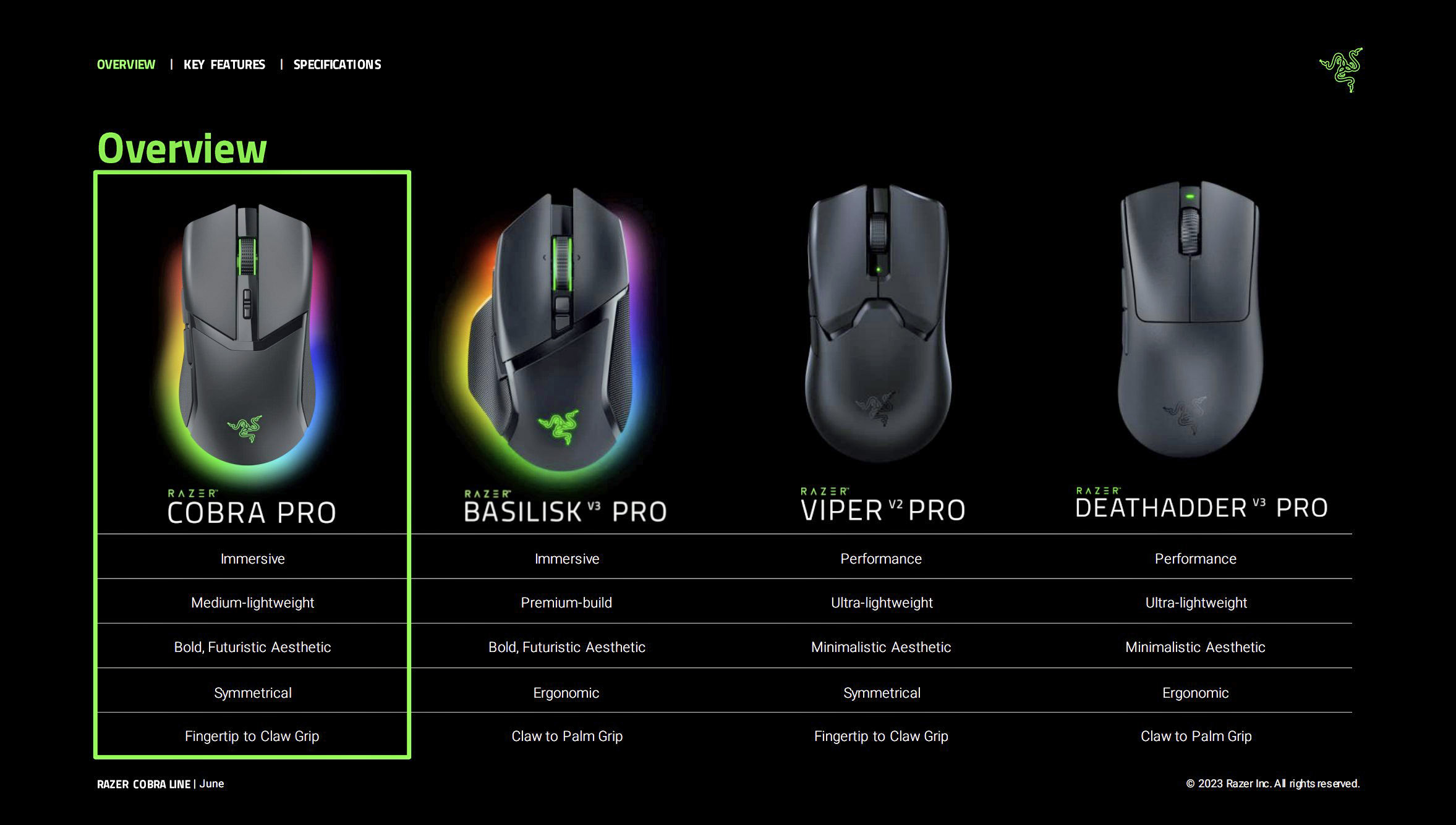
Battery life is rated 100 hours on HyperSpeed 2.4GHz, while Bluetooth gains another 70 hours at 170. Enabling HyperPolling via the extra dongle or mouse dock drops that to just 33 hours. Of course, those numbers can fluctuate dramatically on how you use (if at all) the 11 Chroma RGB zones, 9 of which power the mouse’s under glow with another for the Razer logo and the scroll wheel (which is exceptionally bright). Razer packs some battery-saving features for that RGB, like auto-dimming after some idle time or even controlling brightness in single-digit amounts.
Design-wise, Cobra Pro looks like the Viper V2 Pro with its symmetrical design. However, the Viper V2 Pro is more of a “pro” gamer mouse as it weighs just 58 grams (instead of 77 grams) and is what Razer calls “minimalistic aesthetic,” which means it has no flair and no Chroma RGB as that adds weight and hits battery life.
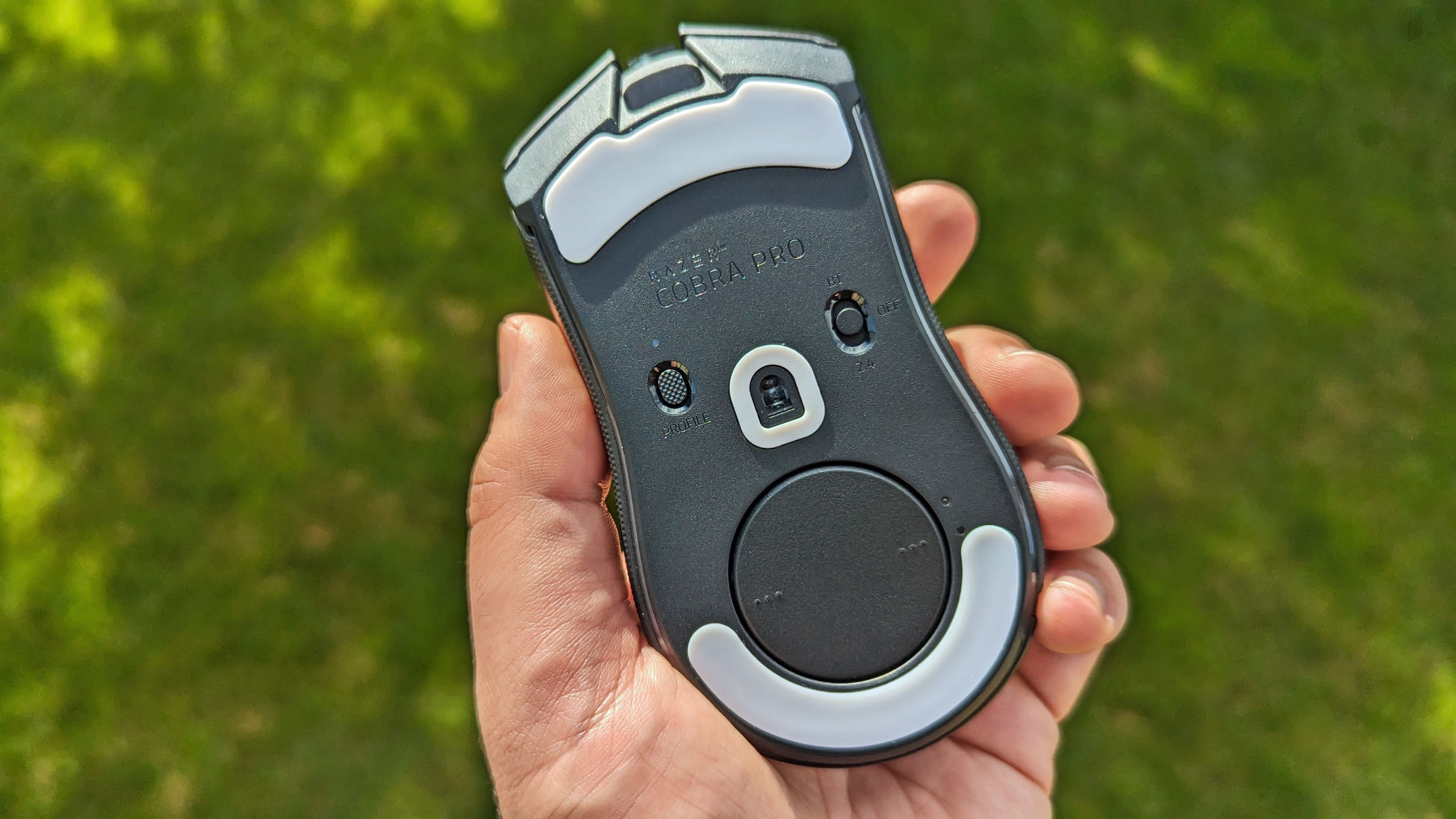
From that perspective, you can think of Cobra Pro as a mix of Basilisk V3 Pro and Viper V2 Pro, bringing the best of both into a new design. While Basilisk V3 Pro is my favorite mouse, its weight, thumb rest, and flair make it less ideal than the Cobra Pro if gaming is your priority.
| Form factor | Right-handed, symmetrical |
| Connectivity | Wireless: Razer HyperSpeed 2.4GHz, Bluetooth |
| Row 2 – Cell 0 | Wired: Speedflex Charging Cable (Type-C) |
| Battery life | 170 hrs (BT), 100 hrs (2.4GHz), 33 hrs (HyperPolling) |
| Sensor | Focus Pro 30K Optical (30,000 DPI) |
| Chroma RGB | Yes. 11 zones. |
| Programmable buttons | 10 |
| Switch type | Optical Gen-3 |
| Mouse feet | PTFE |
| Weight | 77 grams |
| Price | $129 (starting) |
For buttons, you get 10 programmable ones (two on the side, two on top, scroll wheel, DPI button on the bottom, etc.), which is standard. You also get 5 onboard memory profiles, which work with Razer Synapse for customized settings.
The rest of the Cobra Pro is no slouch, either. You’ll find the same 30K optical sensor and Gen-3 switches, with abilities to upgrade the mouse for more premium features, including HyperPolling and wireless charging. If interested in the latter two components, grab the $170 version from Razer.com, including Cobra Pro and Mouse Dock Pro. Mouse Dock Pro lets Cobra Pro magnetically stick to it and wireless recharge while also supplying HyperPolling features all in one unit, negating the need for the dongle.
As someone who uses Mouse Dock Pro, it’s a no-brainer. You can leave RGB on at 100%, get all the Chroma glory, and plop the mouse on the wireless charger at the end of the day. The charger even glows based on battery level as a visual indicator.
Of course, if you buy only Cobra Pro, you can separately purchase the HyperPolling dongle or Mouse Dock Pro later, although it’ll cost a bit more than Razer’s package deals.
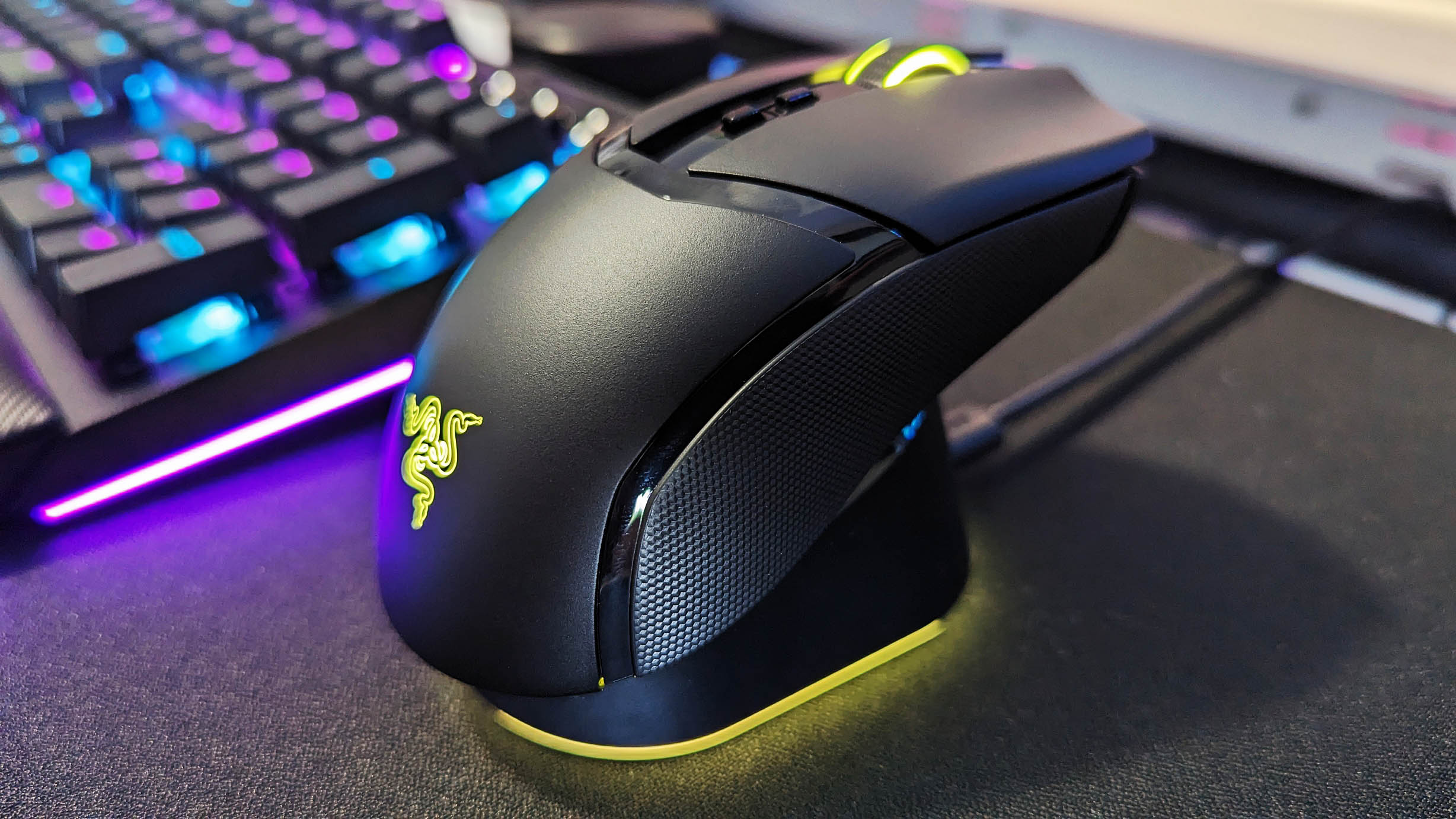
Finally, about that $40 Razer Cobra model. That version has the same design but drops a lot, including wireless connectivity, optionally HyperPolling, RGB Chroma, and dock compatibility. Still, it does weigh less at 58 grams and is much cheaper. The optical sensor, however, is “only” 8,500 DPI instead of 30K, but that’s still good enough for casual users.
Razer Cobra Pro: Should you buy it?
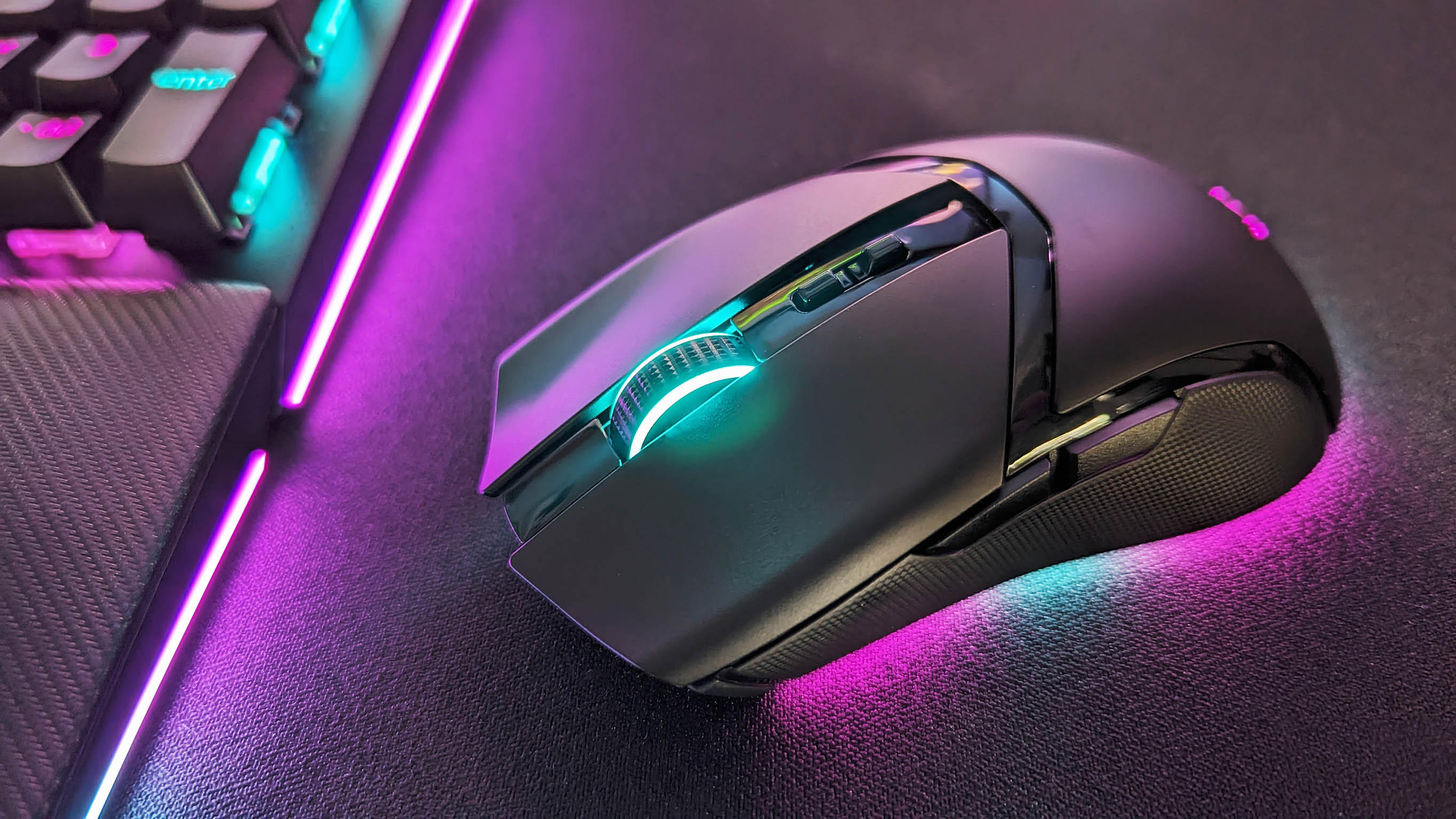
So, who is Cobra Pro for? It’s aimed at gamers-first, normal use second users who also like all the “stuff” that makes Razer, well, Razer, including that awesome RGB. If you’re a productivity person most of the time, who games on occasion or not as often, the Basilisk V3 Pro is a better bet. It’s larger, ergonomic, more comfortable, and better suited for desktop use.
Now, if you’re a hardcore gamer who laughs at spreadsheets or photo editing, you technically have three choices. Razer Viper V2 Pro, which fingertip-to-claw grip, is super lightweight, has no frills, and is just a speed demon. Razer DeathAdder V3 Pro goes more ergonomic with a curvier design and a claw-to-palm grip.
Finally, if you’re a real baller, you go for the $279 Razer Viper Signature Edition, unlike any mouse on the planet weighing 49 grams and featuring an exoskeleton design. If you haven’t seen my Razer Viper Mini SE review, check it out just for sheer insanity, as Razer pushes the limits on industrial design.
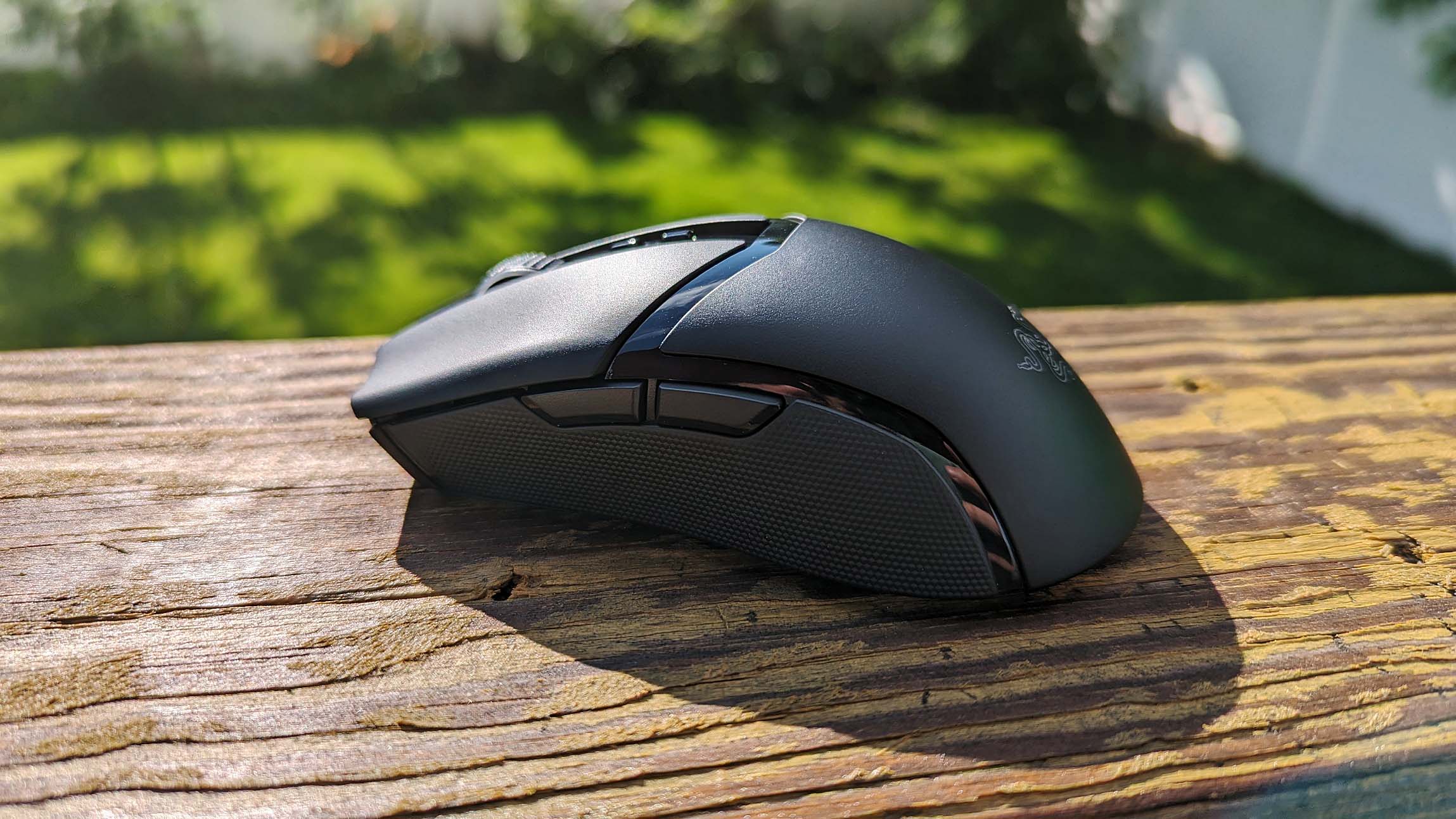
My only small gripe is Razer Synapse, the software needed to control all the lighting, set polling rate, dimming features, etc., is getting a bit bloated and heavy these days. Despite reinstallation, I’ve also had it be less stable than in the past. Your mileage may vary, and technically you don’t need to install it to use this mouse, but it’d be nice if Razer could streamline that app somewhat.
Overall, Cobra Pro is that nice upper-tier premium gaming mouse from Razer that, as mentioned earlier, fills a gap between its no-frills ultralight gaming mice and Razer Basilisk V3 Pro. I’m sticking with Basilisk only because I’m 90% working with it, while I mostly game on my Razer Edge, Steam Deck, or Asus ROG Ally.
But, were my gaming habits to change, I’d go with the Cobra Pro, and it’ll earn a spot on our best gaming mouse list as it brings all that goodness in a lighter, more streamlined package. Interestingly, as I’m writing this review, I just switched between both, and I have to admit, Cobra Pro’s lighter chassis is noticeable, so maybe I’ll be using it after all.


